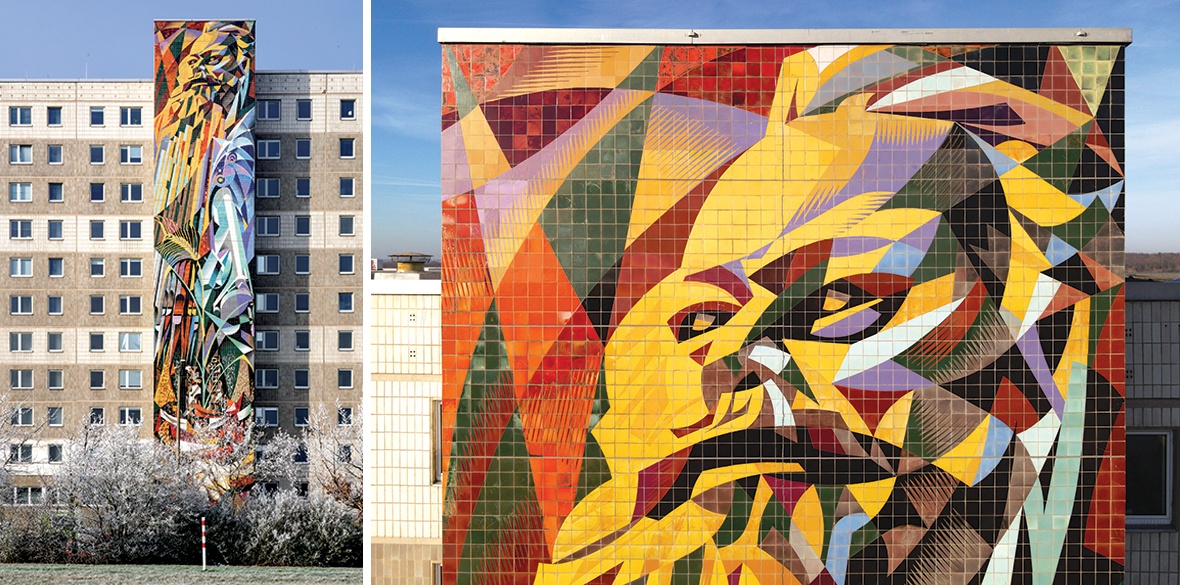Karl Marx mosaic restored in Halle

A colossal mosaic artwork featuring Karl Marx has restored in the east German city of Halle, 50 years after its creation.
The mosaics, which depict the forces of nature and technology controlled by man and the unity of the working class and the founding of the GDR, created by Josep Renau, a Valencian artist and communist revolutionary.
They decorate the facade of the immigration office in Halle-Neustadt, a socialist model town on the outskirts of the main city, that built in the late ’60s to house workers at nearby chemical plants.
 The murals measure 7m x 30m and decorate the staircase of the 12-storey building
The murals measure 7m x 30m and decorate the staircase of the 12-storey building After the fall of the wall, aggressive capitalist transition took its toll on the town. And privatisation and deindustrialisation resulted in job losses and depopulation. Yet despite the dismantlement of the socialist state, Renau’s bold and ideologically supercharged artwork defiantly remained in place.
The restoration of the mosaics funded by the Wuestenrot Foundation and the local council. It took 5,000 hours to repair the 11,136-tile work piece-by-piece.
The restoration has met with positive reactions from residents. Who proud to see their local art restored to its former glory.
The preservation of communist art has become increasingly contentious in recent years, particularly following Russia’s war with Ukraine. However, the decision to restore Renau’s mosaics is a sign that Germany committed to preserving its cultural heritage, regardless of its political implications.
The mosaics are a reminder of Germany’s socialist past. But they also stand as a testament to aspirations for the future. They promote equality and innovation, supported by a commitment to public welfare.
In a time when Germany’s government is moving away from these principles, the mosaics’ positive reception is a sign. That there is still a desire for a more just and equitable society.


- Art
- Causes
- Best Offers
- Crafts
- Dance
- Drinks
- Film
- Fitness
- Food
- Games
- Festival
- Gardening
- Health
- Home
- Literature
- Music
- Networking
- Other
- Party
- Religion
- Shopping
- Sports
- Theater
- Wellness



